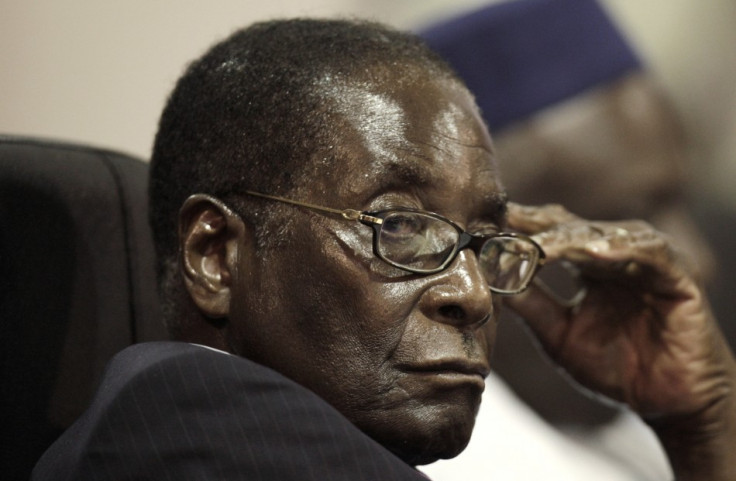Why would Mugabe help Gaddafi?

Just like the Gaddafi regime, The Mugabe government has long feared that Britain and its Western allies would ally to work out a plan that would force him out of power. Both men were liberation fighters and saw themselves, at the beginning of their mandate, as the true voice of the people.
Mugabe fought hard for the liberation of Zimbabwe and its people from colonialism and that can never be taken away from him. Gaddafi on the other hand, also first offered a great concept in the form of the Jjamahiriya - "state of the masses" or "republic of the masses", in which he wanted the people to rule through local councils and communes.
However in both Libya and Zimbabwe opposition parties are often accused of 'working for the imperialists.' Another similarity that both men share is also their recurrent use of an anti-western dialectic as they grew up being inspired by Pan-African writers such as Frantz Fanon, Cheikh Anta Diop or politician Kwame Nkrumah. Both leaders have also insisted they have proofs that Western governments have been supporting opposition parties and both leaders have as well been vocal when it came to insisting on their country's 'sovereignty' and their right to command it without foreign interference. However as in both countries human rights abuses by the authorities, severe repression of the opposition and strict government control became commonplace, the voice of the people was quickly replaced by that of the state.
From the point of view of Mugabe, after France intervened in Ivory Coast under the cover of the UN, the Nato-led operation cannot be a good sign. With the Arab spring toppling authoritarian figures like Ben Ali and Mubarak, who were both seen by many as untouchable, the new trend on the continent seems to indicate that after all nobody should feel irreplaceable. It is then not surprising that Mugabe followed the events in Libya very closely. The intensifying of the Nato bombardments campaign in the last few weeks has also provided the world with a very clear message: coalition forces will not stop until Gaddafi is forced out of power as the conflict has shifted from a rebel vs Gaddafi to a rebel/Nato countries vs Gaddafi conflict.
Moreover, Mugabe is not really on good terms with the West as in 1997, in response to Zimbabwe's intervention in DR Congo, the EU imposed an arms embargo on the country.
In 2000, political relations declined even further as a result of ZANU-PF's political and economic programmes and the West widely criticized the government's seizure of land, the introduction of repressive legislation and increasing violence against its political opponents. In response, ghe EU then introduced targeted measures against individual members of the regime in 2002, which have since then have been renewed annually.
Even if the EU did not impose economic sanctions on Zimbabwe, the Mugabe regime needed friends to lean on as the country has been hit by a deep economic crisis and Gaddafi was one of those friends.
Relations between Zimbabwe and Libya might have had their ups and downs over the years, but Gaddafi was nonetheless considered an ally by the Mugabe government as in the last decades Libya provided assistance to the country, mainly in the form of oil during severe fuel shortages.
The operation by Nato could also represent a way for the West to demonstrate a new willingness to take on and try to tackle regimes which are considered to be Western-unfriendly. With elections in Zimbabwe expected to take place either later in the year or by 2012, the regime might feel nervous. While reports of intimidation and violence by the regime have in the past marked its electoral campaigns, this time the regime is well aware that the election processes will be scrutinised. The latest elections in 2008 were messy and very controversial, forcing the President to include the MDC and its leader Morgan Tsvangirai in a coalition government. In those conditions and with the opposition still complaining of human rights abuses by the authorities, it would be difficult to fail to understand why Mugabe would sympathise with Gaddafi. As the reports of Zimbabwean troop's involvement in the Libyan conflict have neither been really proven to be true or false, one can only wonder what really happens behind the scene.
© Copyright IBTimes 2024. All rights reserved.





